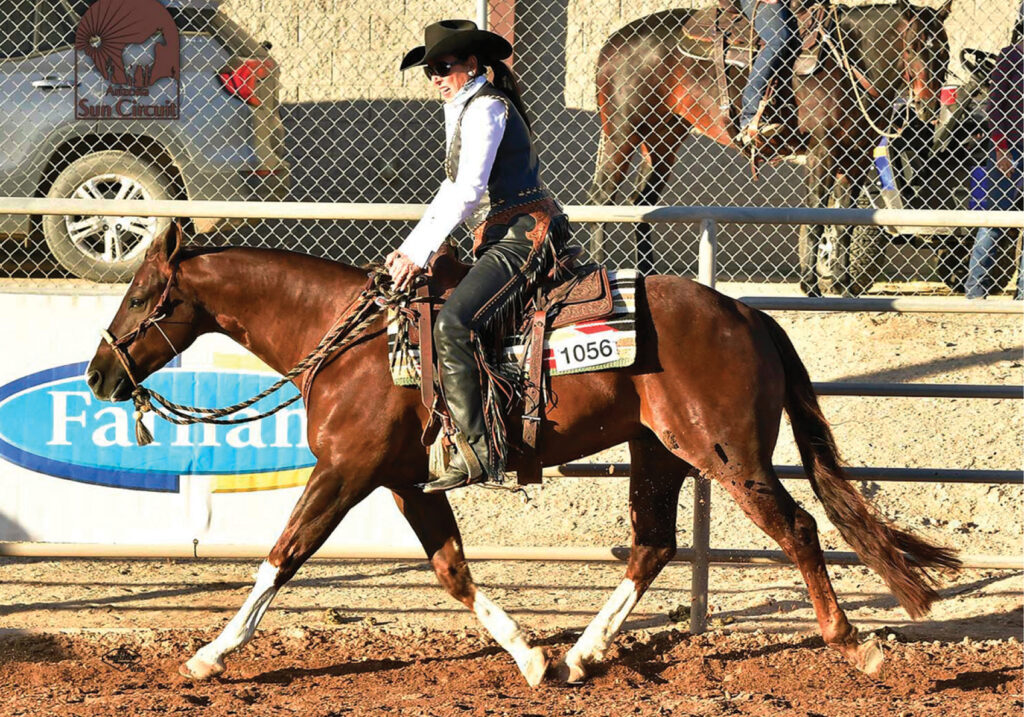Barry Denton says it’s a good thing that I’m not a dog trainer. My dog is spoiled, coddled, and refuses to come when called. She’ll come to anyone else, but not me.
My horses, on the other hand, are the very best-behaved: respectful, thoughtful, and eager to please. It’s very clear as to why this is. But why does this matter? It matters a great deal if you want to stay safe, be a successful competitor, or just become a better rider.

Lessons Learned
Having been raised on a ranch from the time I was a child, there are so many experiences that have shaped the horsewoman I am today. Our ranch horses were tough, smart, and hard working. They each had their quirks. Some were impossible to catch before dawn. But when the boss (my dad) rode out, you’d better be saddled and ready. That’s where I learned what works—and what doesn’t.
One of the first lessons? Horses can feel your frustration the second you step into their pen. I also learned never to make eye contact when trying to catch one. They’ll sense you looking at them, be intimidated by the stare, and then take off. Even in the dark. Even if you’re wearing sunglasses. How? I still don’t know. But they sure do. It has something to do with body language, feel, and that invisible connection between horse and human.
Another lesson came from holding horses for the farrier, who again was my father. These horses were big, heavy, and a lot of work to shoe. But the person on the end of the lead rope can have a huge influence on how a horse will behave. I became the go-to “holder” because I would soothe a spooky one and make the dullard one stand up and behave.
Feeding time brought another invaluable lesson. There are few places more dangerous than the middle of a hungry herd of horses during feeding time. I was taught never to disturb a horse while eating. But that didn’t mean they could be rude or unsafe when you’re delivering their feed. Our horses were taught to back off and wait. Once those boundaries were in place, they were easy to maintain.
So, Why Does This Matter?
All these experiences come back to one thing: groundwork and respect. That foundation sets the tone for everything—riding, showing, or simply enjoying time with your horse. And it helps define the relationship between horse and rider.
When I teach clinics across the country, people are often amazed that I can “read” their horses within minutes. I can tell by their horse’s expression what he’s thinking and why. It’s a fun skill, but also a frustrating one. It seems such a simple fix for me to tell you what to do. It always comes back to the bond between horse and human. Now, don’t mistake that bond for friendship. It’s not about being buddies or loving the one who feeds them. It’s about mutual respect. And that concept is both hard to explain, and yet so important to experience and maintain.
Now What?
It’s the little things that matter. Pay attention. Does your horse respect your space or push into it? When you swing a leg over, does he stand quietly or mindlessly take a step forward?
Every interaction is a chance to reinforce your role as a leader. Your horse knows more about you than you think. So, stay aware, set boundaries, and most of all, enjoy the ride!
—H&R—

